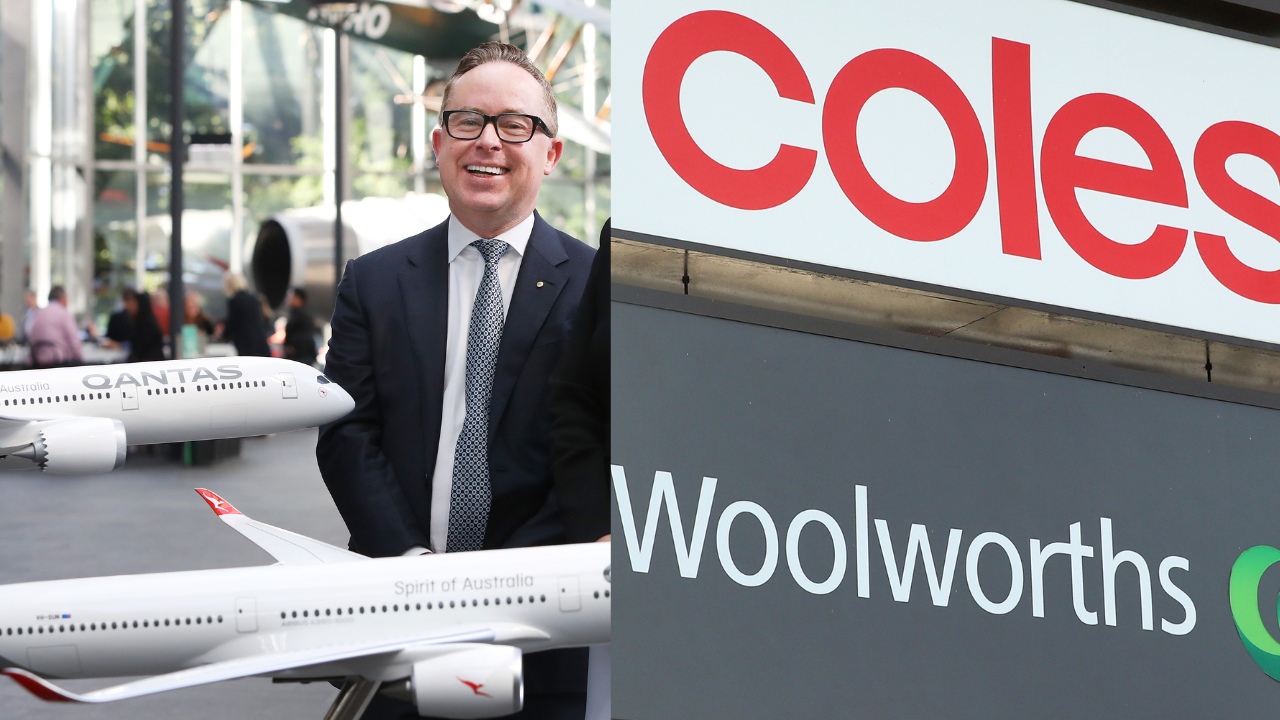
In news that feels like chomping on a sour lemon, Qantas has announced a record annual profit of $2.5 billion. Coles has followed by bringing in $1.1 billion in profits, despite flagging that shoplifting has increased across their stores and affected their profit margin.
In our current financial climate, ginormous profits like this prompt me to ask the simple question: how the fuck have these companies been able to rake in profits like this in the midst cost of living crisis?
It feels tone-deaf for them to even announce how much they’ve made whilst so many of us are struggling financially. Rent is expensive, food is expensive, petrol is expensive: literally everything is expensive.
So if you’re wondering how on earth this is even possible, let me tell you a tale of how companies like Qantas and Coles have just brought in the biggest profits on record while we’re out here trying our best to not have 2-minute noodles (again) for dinner.
How We Got Here: The Road To Mega Profits
We’ve had around a decade of stagnant wages and stagnant economic growth. We’ve also had low inflation which has meant companies like Coles haven’t been able to hike up their prices on everyday items.
Then things changed. Enter the pandemic, invasion of Ukraine, supply chain issues and international economic factors.
These factors did have a genuine impact and made things more expensive. For the most part we understood this and as a result expected prices to rise.
But these sneaky companies knew that we had this expectation, and increased their prices beyond what the costs actually were. This meant a bigger profit margin for them, and more expensive goods for us.
Then mix in a lack of consumer competition and a huge amount of market power, which allowed companies to set the benchmark for how expensive items are. Now due to these acknowledged external economic factors, we’ve just accepted these new prices as the status quo.
It’s created a perfect storm where companies have taken advantage of the lack of competition and our expectations of price increases, and then they’ve gouged us even more. Thanks a lot, Coles.
How Can We Stop The Price Gouging?
One of the best things to help prevent this is a market full of competition, AKA way more options beyond Coles and Woolies. If competition isn’t possible, Matt Grudnoff, a Senior Economist from The Australia Institute says a super profits tax is the next best thing.
A super profits tax would come into play when a company makes a huge amount of profit. It wouldn’t happen when a company makes a normal amount of profit, rather as the name describes, a super amount.
Then that super pot of money would be taxed and redistributed to those who are impacted by the companies putting up the prices. It essentially compensates those that are worse off because of the price gouging, like we’re seeing at the moment from Coles.
It’s important to note that this wouldn’t apply to companies all the time. It’s a temporary tax that only comes into play when a company makes a ludicrous amount of money off the back of putting up prices.
“If you talk to people about the kind of profits that Coles and Woolies are earning now, whether it’s the banks, insurance companies, energy companies or Qantas, they’re fairly outraged,” said Grudnoff.
Grudnoff noted that the best way to prevent companies being able to make a ridiculous amount of money in the first place is by the government introducing stronger laws to encourage competition.
If we have a healthy amount of choice it means people aren’t forced to shop at the same place. This means companies aren’t able to amass super profits and we won’t need a super profits tax to begin with.
But laws and regulations take a long time to come into effect, so in the meantime with prices being at record highs and people struggling to buy groceries, a super profits tax could make a world of difference to those who need it right now.
The post We Figured Out How Coles And Qantas Made Record Profits This Year & Honestly We Hate It appeared first on PEDESTRIAN.TV .







